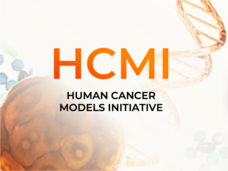Updates & Insights Blog
This blog features current topics in cancer genomics research and news and updates from OCG. Let's continue the conversation on our Personal Genomics Podcast.
At the present time, all NIH-sponsored meetings are cancelled. We apologize for any inconvenience this may cause and appreciate your understanding.
-
OCG’s Data Coordinating Center: Facilitating the Sharing of Data Generated by the Office’s Initiatives
Today, cancer research studies by different research groups produce vast amounts of data in widely varying formats.
-
CytoScreen: A Miniaturized Imaging Platform to Develop Combinatorial Therapies
Hematologic malignancies represent the fifth most common type of cancer and fourth most common form of cancer-related death. More than 1 million people in the U.S.
-
Genomic Discoveries in Pediatric Mixed Phenotype Acute Leukemia Inform Therapeutic Approaches
The principal subtypes of acute leukemia are acute lymphoblastic leukemia (ALL) and acute myeloid leukemia (AML). These are driven by distinct mutational profiles and arise from different developing blood cells.
-
ATAC-seq on TCGA: Insights Into the Noncoding Region in Primary Cancers
Researchers used ATAC-seq to profile the chromatin accessibility of 410 TCGA samples representing 23 primary cancers. The study uncovered a vast number of novel DNA regulatory elements and their potential roles in cancer development, prognosis, and response to therapy.
-
Getting to Know the Complexities of Cancer: A 2018 TCGA Symposium Preview
At the 2018 Cell Symposium, TCGA Legacy: Multi-Omic Studies in Cancer, cancer genomics experts will discuss the latest research in molecularly characterizing cancer, classifying the disease, and the development of targeted therapy. A preview of how some researchers are starting to understand the complex and dynamic aspects of cancer.
-
Finding Pediatric Cancer Genomic Data through PGDI
The Pediatric Genomic Data Inventory (PGDI), developed by the Office of Cancer Genomics (OCG), is a new public resource informing researchers how and where to access globally generated pediatric cancer genomic datasets. Connecting researchers with data and fostering collaborations is key to furthering our understanding of childhood cancers.
-
How OCG’s Programs Support the Innovative Science that Will Improve Patient Care
The mission of the National Cancer Institute’s (NCI) Office of Cancer Genomics (OCG) is to enhance the understanding of the molecular mechanisms of cancer; advance and accelerate technology development; and efficiently translate high-throughput data to improve cancer research, prevention,
-
FASMIC: An Integrated Bioinformatics Resource for Functional Annotation of Somatic Mutations in Cancer
Next-generation sequencing studies identified thousands of somatic mutations in tumor cells.
-
Collecting and Harmonizing Clinical Data Across an International Initiative
The Human Cancer Models Initiative (HCMI) is an international consortium with the goal to produce and distribute up to 1,000 novel human cancer models.
-
Quantifying the Timing of Metastatic Progression from Patient Genomic Data: Spatial Computational Inference of MEtastatic Timing (SCIMET)
Metastasis, the systemic spread of malignancy to an organ other than the primary site of cancer, is the chief cause of cancer related death. Consequently, understanding and controlling metastasis is one of the most pressing issues in cancer medicine.










